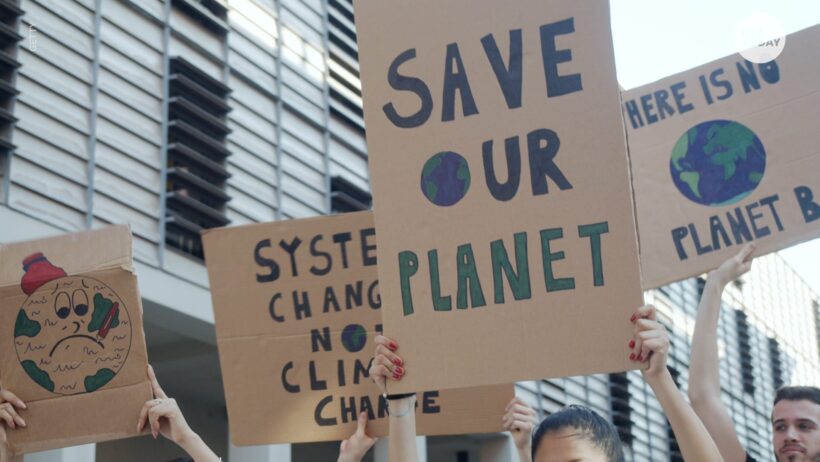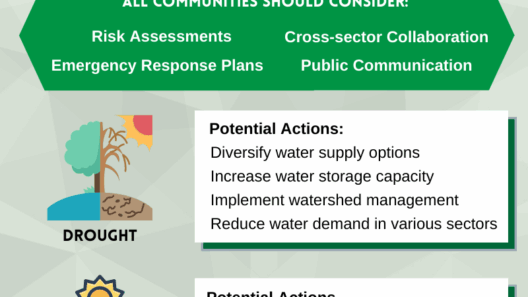Climate change stands as one of the most formidable challenges of our time, with profound implications for ecosystems, economies, and the very fabric of society. Yet, the daunting nature of this issue can sometimes lead to skepticism or feelings of powerlessness among individuals. However, the reality is that everyone can contribute to mitigating its impacts. By taking tangible steps, each person can play a pivotal role in combating this global crisis. Here are actionable steps to help you initiate meaningful change.
Understand the Problem
A comprehensive understanding of climate change is fundamental before embarking on any meaningful action. At its core, climate change refers to significant alterations in global temperatures and weather patterns over time. The overwhelming scientific consensus attributes these changes primarily to human activities, particularly the burning of fossil fuels, deforestation, and industrial processes. Familiarizing yourself with the science behind climate change—not just the symptoms, like extreme weather events or rising sea levels, but the root causes—can deepen your commitment and inform your decisions.
Reduce Your Carbon Footprint
One of the most effective means of combating climate change is to minimize your carbon footprint. This includes the total greenhouse gases you emit through your daily activities. Start by examining your energy consumption. Take Measures such as switching to energy-efficient appliances, reducing reliance on heating and air conditioning, and employing renewable energy sources like solar or wind power when possible. Small changes in your daily habits, such as turning off lights when not in use and unplugging devices, can collectively lead to significant reductions in energy consumption.
Transportation is another major contributor to carbon emissions. Opt for public transport, carpooling, cycling, or walking whenever feasible. If you must drive, consider investing in an electric or hybrid vehicle. Additionally, advocate for better public transportation systems in your community, as these can significantly lower overall emissions.
Adopt Sustainable Eating Habits
The food you consume plays a crucial role in climate change. Animal agriculture is responsible for a substantial percentage of greenhouse gas emissions, making dietary choices pivotal in addressing this issue. Consider reducing your meat and dairy consumption, and incorporate more plant-based foods into your diet. Such transitions not only lessen your carbon footprint but also promote a healthier lifestyle. Furthermore, practice mindful consumption by prioritizing local and seasonal produce to minimize transportation emissions.
Practice Waste Reduction
Waste, particularly plastic waste, has catastrophic environmental consequences. Reducing, reusing, and recycling are paramount principles that everyone should adopt. Begin by minimizing single-use plastics. Instead, opt for reusable bags, bottles, and containers. Composting organic waste can significantly decrease the amount of garbage sent to landfills, thus reducing methane emissions—a potent greenhouse gas. Becoming a vigilant consumer means consciously choosing products with minimal packaging and supporting companies that prioritize sustainability.
Educate and Advocate
Knowledge is power. Share what you learn about climate change and its impacts with your friends, family, and community. Organizing workshops or discussions can help raise awareness and encourage collective action. Advocacy is also critical; push for policies at the local, national, and global levels that prioritize environmental protection. Engage with policymakers to support legislation that aims to prevent climate change and protect natural resources. Joining local or national environmental organizations can amplify your efforts, connecting you with like-minded individuals committed to activism.
Support Sustainable Businesses
As consumers, we possess significant influence over market trends. By supporting businesses that demonstrate genuine commitment to sustainability, you can encourage corporations to adopt environmentally friendly practices. Research companies before making purchases, selecting those that prioritize ethical sourcing, sustainable production methods, and minimal waste. Also, encourage your workplace to adopt greener policies, such as reducing paper usage or implementing recycling programs.
Engage in Community Actions
A sense of community can be powerful in the fight against climate change. Participate in local clean-ups, tree-planting initiatives, or conservation projects. Such actions not only directly benefit the environment but also foster solidarity and collective responsibility. Communities that come together often inspire others to recognize their role in addressing environmental issues, creating a ripple effect of positive change.
Stay Informed and Adapt
The landscape of climate science is continually evolving. Stay updated on the latest research, policies, and strategies by following reputable sources and experts in the field. As new information becomes available, be willing to adapt your practices and strategies for mitigation. Flexibility and a willingness to learn are crucial in effectively addressing the intricate dynamics of climate change.
Monitor and Reflect
Finally, it is vital to monitor your progress and reflect on your actions. Evaluate what steps you have taken to reduce your impact and where you can improve. Keeping a journal can enhance your awareness of daily habits and encourage accountability. Celebrate small victories while setting ambitious goals for the future.
In conclusion, climate change is a pressing challenge that demands our immediate attention. The good news is that each of us possesses the power to make meaningful changes. By understanding the issues, making sustainable choices, advocating for better policies, and supporting collective community efforts, we can contribute to a significant, positive impact. The path to combating climate change begins with individual action, but collective efforts can lead to transformative change. Start here, start now, and be part of the solution.








